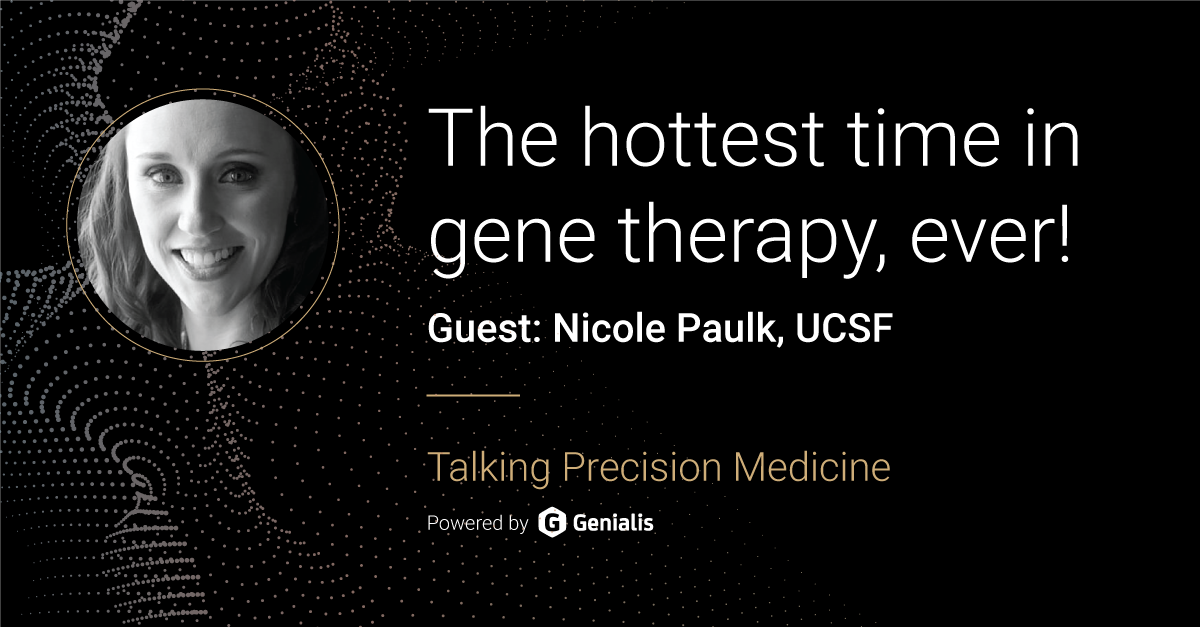Welcome to the Talking Precision Medicine podcast. In this series, we sit down with experts on the application of AI and big data analytics in the drug discovery space. Our guests are innovators, business decision makers and thought leaders at the intersection of data and therapeutics. We discuss the promise, practice, challenges, and myths of AI in precision medicine. This show is brought to you by Genialis, and Rafael, our CEO, is your host.
Genialis is focused on data integration and predictive modeling of disease biology to help accelerate the discovery and de-risk the development of novel therapeutics.
Today we speak with Dr. Nicole Paulk. Nicole is an assistant professor at the University of California San Francisco, and the Advisory Lead for Genome Engineering at Chan Zuckerberg Biohub.
Nicole’s lab builds technologies to advance the entire field of viral gene therapy. They are a force behind the rising tide lifting the gene therapy industry. She is also committed to training the next generation of scientist innovators.
Episode highlights:
- I specialize in the type of gene therapy that is delivered with the virus and that’s simply because viruses have evolved to be fantastic basically little FedEx trucks. They’re really good at getting inside of you and delivering packages
- Not only that we are for the first time really effectively and safely treating these patients, but for some disorders, we’re able to use the magic C word (cure).
- There are a number of things that are just shy of getting FDA approved that are in their final stage of approval. The one that everyone is most excited about is one the one for spinal muscular atrophy. 12 patients so far have been treated. The ones in the highest dose cohort went from being bedridden to walking – it’s amazing.
- You want to make sure that those patients are responders, particularly with these viral therapies because you can only because you can really get only one injection, you can’t get a repeat injection, because even though the virus we use is not pathogenic to humans, which means not disease-causing, you can still get it once, because your body will make antibodies against it after it has seen it once.
- Most exciting about that too is that it [AI] allows us as academics to get past our biases, because every one of us has a bias, and using these tools allows us you to get pass to go after targets that may not be anything you know about but might actually be the thing that’s helping control the fact that this virus goes to this tissue and not that tissue and so despite the fact that this might not be your wheelhouse or anything that you know about it can help force you to have to learn about it.


